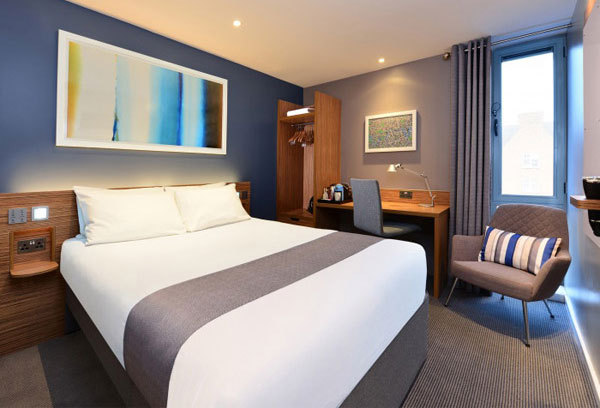✕

Column: industry Tag: Chinese domestic travel,China Lodging,China Lodging Group Published: 2017-08-21 13:49 Source: Author:

China Lodging Group reported strong occupancy, average-daily-rate and revenue-per-available-room growth during the second quarter thanks to growing domestic travel.
(Illustration: Annamarie Hudson)
SHANGHAI—China Lodging Group executives repeatedly touted the company’s better-than-expected performance in the second quarter during their recent earnings call.
Strong Chinese domestic travel demand persisted despite a softening of the macro economy, CEO Jenny Zhang said. Disposable income grew 2% from 2011 to 2016, she said, while domestic travel expenditures grew 14% for the same time period.
“The strong demand for travel has been driven by the lifestyle change of Chinese people, who favor travel and other life enrichment activities,” she said. “The trend is often called consumption upgrade. In particular, we see increasing adoption of the annual leave system and higher frequency of short-distance leisure travel.”
Travel demand remains strong, she said, which helps give pricing power to the industry. The company reported occupancy of 90.1% for the quarter, a 4.9% year-over-year increase. That paired with a 7.9% year-over-year increase in average daily rate to 199 Chinese yuan ($29.79) led to a 14% year-over-year increase in revenue per available room to 179 yuan ($26.80).
China Lodging’s stock was up 107% year to date as of press time. The Baird/STR Hotel Stock Index was up 22.8% for the same time period.
Hotel development
The net addition of branded hotels slowed in 2016 in China, Zhang said, and that trend is expected to continue through 2017. Hotel investors have become more rational, she said, and the number of openings of economy hotels has dropped sharply.
China Lodging opened 272 hotels during the second quarter, according to its earnings release. Seventy-two of those were leased properties while the remaining 200 were managed and franchised properties. Included in that total were 140 hotels opened through the recently acquired Crystal Orange Hotel Holdings.
The company closed six leased hotels and 61 manachised and franchised hotels during the quarter, bringing the first half’s total to 89 closed hotels. The company removed 31 of those because of noncompliance of brand and operating standards, 28 because of rezoning and the return of military-owned properties and the expiration of leases and 30 because of operating losses in third- or lower-tiered cities.
There are a total of 2,541 in China Lodging’s portfolio, CFO Teo Nee Chuan said, with 612 hotels in the pipeline as of the second quarter.
Earlier this year, China Lodging launched two new midscale brands: CitiGo and HanTing Plus, Zhang said. Franchisees took to the brands well, and executives are proud of the company’s progress in building share in the growing midscale and upscale markets. During the past three years, its increased room inventory in midscale and upscale segments from 11% in 2014 to 24% in 2017, she said. About 57% of hotels in the development pipeline are in midscale and upscale segments, she said.
Company Founder and Executive Chairman Qi Ji said through translation that the company’s growth of net openings declined mainly because of the macro economy and some underperformance of some brand results.
“Looking forward, we think it’s always a balance of quality and expansion fee,” he said through translation. “We would put the quality as a priority. Therefore, even though we can open 1,000 hotels every year, we are trying to keep the number in the range of 500 to 800 net additions every year without considering acquisition. It’s organic growth.”
Expanding too far would stretch the main resources and create unnecessary competition in the market, he said.
Previous:New supply’s pending impact on the top 25 US markets
Next:New Road Hotel set to open in Whitechapel, London, in late 2017
Hot key words
Hot Products
Popular Vendors